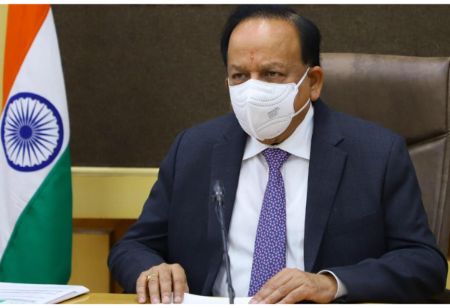
Ayurveda Economy Witnessed Nearly 90% Growth Post-COVID: Harsh Vardhan


During the pandemic, Ayurveda has gained global acceptance. Hence Ayurveda economy witnessed up to 90 percent growth after the COVID-19 pandemic, Union Health Minister Harsh Vardhan said.
The sector has also witnessed a significant surge in export as well as investment, he said.
As per official data, Ayurveda is a Rs 30,000 crore industry, having an annual double-digit growth of 15 to 20 percent, reports PTI.
“This (data) is of the pre-COVID era. Post-COVID, the economy of Ayurveda, which is Rs.30,000 crore with a growth of 15 to 20 percent, has gone up to 50 to 90 percent,” he said.
This itself reflects that people from India and the world have accepted Ayurveda.
“There has been a marked improvement in terms of exports and Foreign Direct Investment (FDI) also,” he said while speaking at a function here to release a research paper by Haridwar-based Patanjali on the 'first evidence-based ayurvedic medicine' against COVID.
The Ayush Ministry conducted 109 types of studies at 140 places during the times of the pandemic. “When I saw the results, it was encouraging and positive,” he said.
“If we technically study it, then India has a great potential,” he added.
Harsh said, “Though I have practised modern medicine but after studying Ayurveda, I have come to conclusion that it is beneficial for all.” Lauding the efforts of Swami Ramdev and his Patanjali Ayurveda, Harsh said, “Ayurveda should be re-established in a scientific and modern way in the world and this will be a matter for pride and help the cause of humanity”.
Ramdev, when speaking at the occasion, said that there is a need for harmony among all treatment patterns – the modern allopathy and traditional naturopathy.
Union Minister for Road Transport and Highways, Nitin Gadkari who was also present said Patanjali has provided a good alternative for the daily usage products for which the country has to pay a royalty to the foreign makers.